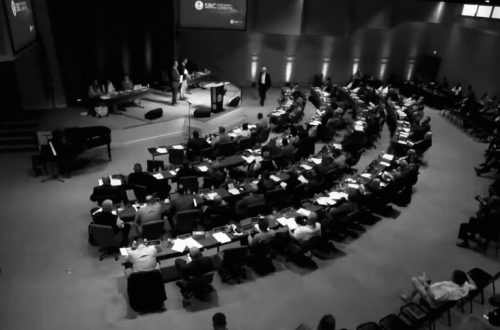 I just finished watching Oprah Winfrey’s interview with Lance Armstrong. The whole event has been a public spectacle, but it has also been a very human one. In my view, Armstrong fell short of the contrition required of a man guilty of the things that he has done. Here’s what came across to me in the interview.
I just finished watching Oprah Winfrey’s interview with Lance Armstrong. The whole event has been a public spectacle, but it has also been a very human one. In my view, Armstrong fell short of the contrition required of a man guilty of the things that he has done. Here’s what came across to me in the interview.
1. Armstrong made his confession because he was forced to. His lies had been so thoroughly exposed by multiple witnesses, that there was simply nowhere else for him to hide. There was no credible denial he could have made at this point. He didn’t want this confession. It was forced upon him.
2. Armstrong is still galled by the fact that he is getting called on the carpet for an activity that his fellow professional cyclists got away with. He didn’t name names, but he kept referring to the “culture” of cycling while he was racing, or his “generation” of cyclists. Both of these expressions were roundabout ways for him to say that the culture of cycling encouraged doping and virtually all competitive cyclists from his generation were involved in doping. He knows that he must confess his wrongs, but he would like to take the edge off of his transgressions by showing that he doesn’t measure up so badly against the other transgressors he raced against.
3. Even though Armstrong confessed to doping, he still seemed to trade in fair bit of euphemizing. Armstrong referred to his actions as “mistakes” and said that he “wasn’t perfect.” This kind of language falls short of describing what he actually did. He cheated and lied and even bullied people who tried to expose him. He even went so far as to sue persons who revealed what he did. Oprah pressed him on this point saying, “You were suing people, and you knew that what they were saying was true. What is that?” Armstrong’s response was simply, “It’s a major flaw.” Perhaps Armstrong just doesn’t have the moral vocabulary to express what it really was—sin.
As I said, this interview is a human spectacle—a spectacle I am very all too familiar with. Nearly every evasion I detect in Armstrong, I can also detect in myself. It all looked very familiar indeed.




4 Comments
westminsterconfessor
Mr. Armstrong was for years a role model and encouragement for many persons with cancer. We utilize the LiveStrong materials in my office. It is hard to have one’s hero proven to have feet of clay.
Far be it from me to read the man’s heart, but I have read his autobiography–given to me by one of those former patients who found inspiration in Mr. Armstrong’s fight against cancer and apparent triumph in the highly competitive world of cycling. Throughout it all I never had a sense that he was grounded in God. He was always a fiercely autonomous man. Perhaps it was that self-definition that allowed him to justify what he did in order to reach the pinnacle of his sport. But that standard will never stand over time.
Ken Abbott
I stated my name before–Ken Abbott–but for some reason the browser substituted my blog id. Sorry about that.
Alex Humphrey
Your last paragraph is worth the price of admission and then some.
Thank you, Denny.
Pingback: